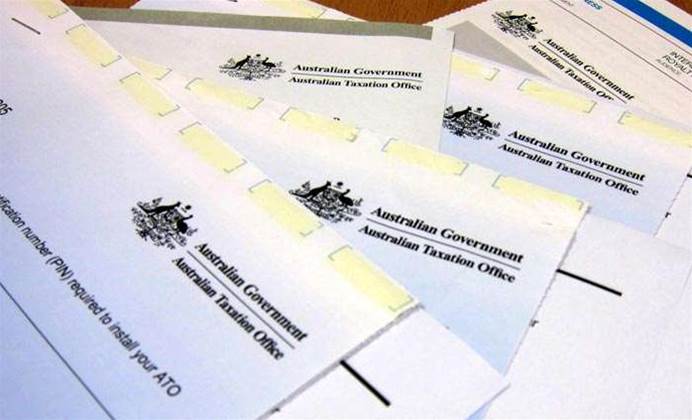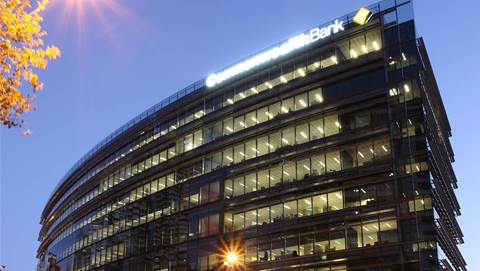The Australian Tax Office has published its second annual list of tax records for the country’s biggest companies, revealing some of the word’s largest technology giants paid no Australian tax last year.

The ATO was able to start publishing data from the tax records of companies earning more than $100 million annually from last year, thanks to laws passed by the former Labor government.
The laws impact up to 2000 companies operating in the country. Last year the ATO published the 2013-14 tax filings for 1839 private and public corporate taxpayers, and today went public with filings for 1904 businesses for 2014-15.
It revealed that tax bills were avoided completely by technology companies Acer, Aconex, ASG, Amaysim, Citrix, Dicker Data, Dimension Data, HP South Pacific, IBM, Ingram Micro, Macquarie Telecom, NEC, Nextgen, and Vodafone.
Whilst some of the nil payments can be explained by losses - like those at HP, Vodafone, NEC, Dimension Data, Ingram Micro, and Acer specifically - a zero tax bill can also signal a company is using offsets against their profits to reduce their tax obligations.
Among the biggest businesses with a zero tax bill are IBM - which brought in $3.6 billion in local revenues and had a taxable income of $49 million - and Citrix, which had a taxable income of $11 million off the back of $275 million in revenue.
Others in the list include:
- Aconex had a taxable income of $1.4 million on total revenue of $106 million
- ASG Group posted revenue of $164 million and $12 million in taxable income
- Amaysim brought in $216 million in total revenue with a taxable income of $6.3 million
- Dicker Data posted $447 million in revenue but had no taxable income or tax bill
- Macquarie Telecom brought in $2.7 million in taxable income off $193 million in revenue
- Nextgen, which was bought by Vocus in October, brought in $258 million in revenue but paid no tax
The ATO did, however, warn against assuming zero-taxpayers are dodging their obligations.
"No tax paid does not necessarily mean tax avoidance, and assumptions about an entity’s compliance with their tax obligations, or those of their associated groups, cannot be made solely on the basis of this data,” it noted.
“While the majority of entities in the corporate transparency population made profits and paid tax in 2014-15, sensitivity to economic conditions, reinvestment back into the business, distribution of profits to other entities within the broader group, tax deductions and tax offsets can affect the amount of taxable income and tax payable.”
Little tax
The ATO list reveals that a number of other technology giants were able to reduce their tax bill to under the Australian corporate rate of 30 percent.
The company most criticised for its tax minimisation efforts, Google, paid just $12 million in tax on a taxable income of $106 million and $439 million in local revenue.
Since these results the company has restructured its operations to count revenue generated locally from Australia, rather than Singapore.
SAP paid just $1.2 million on taxable income of $7.7 million, off the back of almost $800 million in revenue.
An SAP spokesperson said the company pays 30 percent tax rate on its taxable income.
"The tax incurred takes into account R&D incentives and foreign tax paid, and represents the identical liability that any Australian organisation would be accountable for under like circumstances," the spokesperson said.
Apple missed the 30 percent mark with a tax bill of $146 million on a taxable income of $489 million, and $8.3 billion in revenue.
Amcom - now a subsidiary of Vocus - had a taxable income of $6.7 million on revenue of $166 million but handed over just $820,225 in tax.
Computershare’s tax bill was $32 million despite taxable income of $137 million and revenue of $881 million.
Datacom paid $1.7 million on a taxable income of $8 million and $378 million in revenue, Dell handed over $3 million in tax on a $12 million taxable income and $267 million in revenue, and Distribution Central paid $2 million in tax on a $9 million taxable income and $292 million in revenue.
EMC’s $299 million in revenue and $27 million taxable income translated to a $5 million tax bill, Fuji Xerox paid just $18 million on its $82 million taxable income and $1.2 billion in revenue, and Huawei handed over $8.6 million to the ATO despite its $34 million taxable income and $502 million in revenue.
Tata Consultancy Services posted revenue of $381 million and a taxable income of $55 million, but paid only $9.8 million in tax.
Similarly, TechnologyOne’s $9 million tax bill was much lower than 30 percent of its $69 million in net income. It attributed R&D offsets to the difference.
UXC - now part of CSC - paid just $6 million on a taxable income of $34 million and revenue of $580 million.
And Toshiba and and Unisys paid $3.5 million and $2 million respectively in tax on individual taxable incomes of $12 million and $10.8 million. Toshiba’s revenue was $625 million, while Unisys brought in $212 million.
Unisys said its tax rate appeared lower than the 30 percent corporate rate as the ATO figures did not detail its R&D credits.
"The tax paid for 2014-2015 takes into account a credit for R&D investments in Australia, such as for the development of our AB Suite software and the Forward enterprise computing platform, as well as a credit for foreign tax paid," a spokesperson said.
Pat on the back
Several companies who have previously been criticised for low tax bills upped their game in the most recent list.
Lenovo’s taxable income came in at $5.7 million off the back of revenue of $555 million, resulting in a tax bill of $1.7 million. Last year it had paid just $39,703 in tax after reducing its taxable income to only $132,344 off earnings of $372 million.
Microsoft again came close to hitting the 30 percent mark with a tax bill of $33 million off $111 million in taxable income and $679 million in revenue. It paid a similar rate of tax off a comparative taxable income last year.
And Melbourne IT paid $392,574 in tax off a $1.3 million taxable income and revenue of $122 million. Last year its tax bill was a small $4.7 million off $26 million in taxable income.
Many other technology businesses listed by the ATO either met or came close to their 30 percent tax rate obligations.
That list includes: Accenture, Alcatel-Lucent, Amazon Corporate Services, AT&T, Avnet, BT, Cisco, CSC, Data#3, iiNet, Infosys, LG, M2, Motorola Solutions, NetApp, Samsung Electronics, SMS Management and Technology, Symantec, Synnex, Sony, Tech Mahindra, Telstra, Teradata, TPG, Verizon, Vocus, Westcon, and Wipro.


_(22).jpg&h=140&w=231&c=1&s=0)


_(20).jpg&h=140&w=231&c=1&s=0)





 iTnews Executive Retreat - Security Leaders Edition
iTnews Executive Retreat - Security Leaders Edition










_(1).jpg&h=140&w=231&c=1&s=0)



